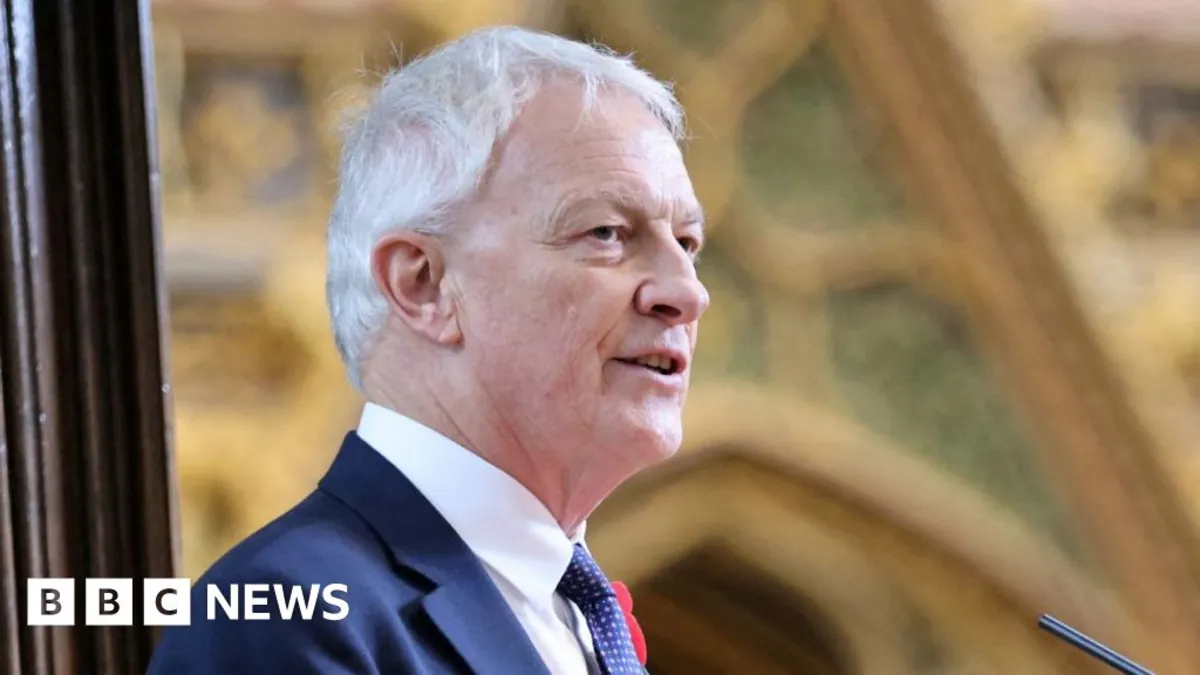
In a surprising turn of events, New Zealand has officially fired its most senior envoy to the United Kingdom, High Commissioner Phil Goff, over remarks that questioned US President Donald Trump's understanding of history. This decision was made following Goff's comments at an event in London, where he drew a parallel between the ongoing conflict between Russia and Ukraine and the infamous 1938 Munich Agreement.
During the event, Goff referenced how the Munich Agreement allowed Adolf Hitler to annex parts of Czechoslovakia. He quoted Sir Winston Churchill, who harshly criticized the agreement, and then proceeded to question Trump's grasp of historical context: "President Trump has restored the bust of Churchill to the Oval Office. But do you think he really understands history?" This statement was met with immediate backlash, prompting New Zealand's Foreign Minister, Winston Peters, to describe Goff's comments as "deeply disappointing" and ultimately untenable for his diplomatic role.
Goff's comments came shortly after President Trump paused military aid to Kyiv following a contentious exchange with Ukrainian President Volodymyr Zelensky in the Oval Office. By contrasting Trump with Churchill, Goff highlighted Churchill's opposition to the Munich Agreement, which he viewed as a capitulation to Nazi Germany. Goff quoted Churchill rebuking then UK Prime Minister Neville Chamberlain, stating, "You had the choice between war and dishonour. You chose dishonour, yet you will have war."
Peters emphasized that Goff's views did not reflect the official stance of the New Zealand government. "When you are in that position, you represent the government and the policies of the day. You're not able to free think; you are the face of New Zealand," he stated. This sentiment underscores the importance of maintaining diplomatic decorum, with Peters noting that he would have taken similar action regardless of the country being discussed.
Phil Goff, a seasoned politician, had served as the High Commissioner since January 2023. His extensive political career includes two terms as the Mayor of Auckland, New Zealand's largest city, and leadership of the Labour Party from 2008 to 2011. Goff has also held various ministerial positions, including those related to justice, foreign affairs, and defence. His dismissal marks a significant shift in New Zealand's diplomatic approach, particularly given the sensitivity of international relations.
Interestingly, Peters made the decision to terminate Goff's contract without prior consultation with Prime Minister Christopher Luxon. When questioned about this lack of communication, Peters responded, "I know he's the prime minister; I made him the prime minister." This statement highlights the political dynamics within the current centre-right coalition government, which includes Peters' New Zealand First party, Luxon's National Party, and the Act Party.
Following Goff's dismissal, former Prime Minister Helen Clark voiced her criticism, suggesting that the justification for Goff's firing was flimsy at best. Clark noted that many at the recent Munich Security Conference drew parallels between the Munich Agreement of 1938 and current US actions. Under the Munich Agreement, Hitler's control over Czechoslovakia's Sudetenland did not prevent further aggression, ultimately leading to the outbreak of World War II.
This incident not only highlights the complexities of international diplomacy but also raises questions about the balance between personal opinion and official representation in government roles. As New Zealand navigates its foreign relations, the implications of this decision will likely resonate within diplomatic circles for some time.